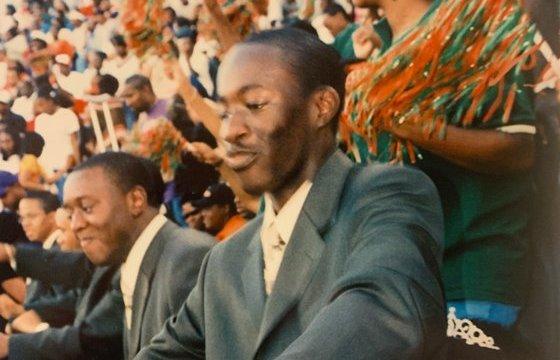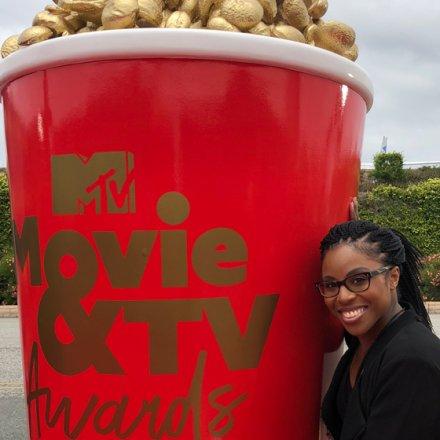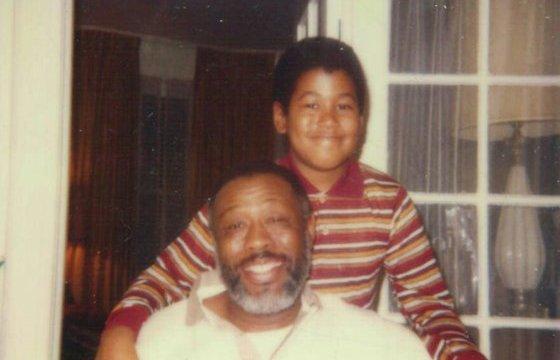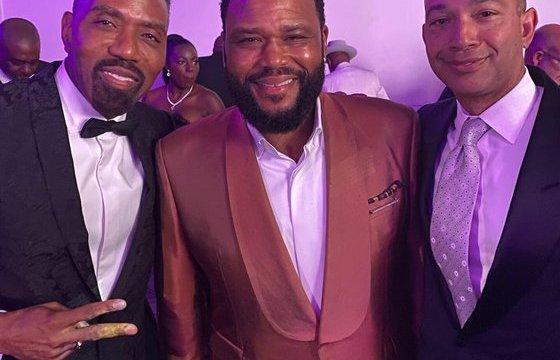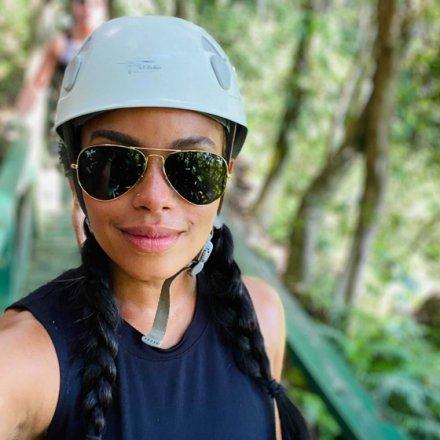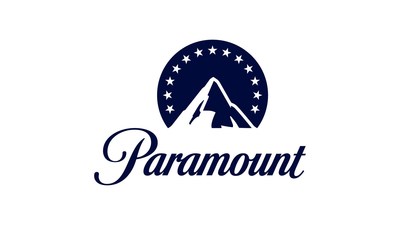'We're Not Doing Our Job if We're Not Telling the Whole Story.'
ViacomCBS employees discuss the importance of fostering a culture of belonging that exists beyond Black History Month.
At ViacomCBS, February isn’t the only time we honor Black history—it’s a year-round priority for the company.
“It’s not only important to celebrate Black history—it’s essential,” says Janée Dabney, VP of talent and series development for MTV Entertainment Group. “From a corporate standpoint, it’s a critical part of creating a culture that prioritizes diversity and inclusion. And when companies prioritize diversity and inclusion, it signifies that the company culture values each of its employees.”
The ViacomCBS Newsroom spoke to Dabney, along with her colleagues Barry Pearson, Brandy Fisher, Marland Zanders, and Louis Carr, about what Black history means to them, cultivating spaces where their Blackness is valued, how last year’s heightened focus on systemic racism has affected them, and what it means for companies to weave diversity and inclusion into everything they do.
On the power of authenticity...
Louis Carr, president of media sales at BET Networks: There’s a saying in the Black community: ‘Don’t just talk about it. Be about it.’ I’ve been at the company for almost 35 years, and my primary job is to educate the business industry on the value and contributions of African Americans… But we, as a country, need to do a better job of highlighting the contributions that African Americans have made throughout our history.
Janée Dabney, VP of talent and content at MTV Entertainment Group: It has really fallen on our own families, our own communities to pass down our stories and to celebrate our achievements as Black Americans. As far as my story goes, I like to say it’s a joyful one… My life has been filled with wonder and love that has enabled me, encouraged me, and equipped me to be able to confidently pursue my goals… I don’t take that for granted.
Barry Pearson, VP of financial planning analysis at MTV Entertainment Group: Just thinking about how much my parents sacrificed to get me to where I am right now. It was that village… that pushed me to really try to be the best that I could be.
Brandy Fisher, senior director of diversity and inclusion at ViacomCBS: It was very challenging going to school growing up and never seeing anyone who looked like me… When I sit in a room now and I notice that I’m the only one that looks like me in a corporate setting, it fuels me, motivates me, and makes me say: ‘Why am I the only one, and what can I do to change this?’
Marland Zanders, senior manager of human resources operations and information systems at ViacomCBS: There’s a responsibility to honor those people who have gone before me, and to make sure I set a foundation for those who will follow behind me. My grandmother, who grew up in the deep South and went through some of the horror stories that we see in the movies and on television, made me conscious that there is a double standard in the country, but also understand that if you empower yourself, if you educate yourself, you can break down some of those barriers.
On creating diverse and inclusive spaces....
Pearson: Often when we think about diversity and inclusion we think about the metrics, the quotas, but… it’s really just about being the best we can be. It’s being thoughtful about our business, our community, and our workforce. It’s making sure we’re representative of the audiences we want to serve.
Zanders: You really can’t have honest, fair, and reliable media if you’re not representing the true state of the country or its true history. So many people rely on the news or even casual television to be informed about the world around them…. We’re not doing our job if we’re not telling the whole story.
Carr: It’s also not just what we put on air. It’s what we do when we’re not on air. I think 2020 was a great awakening for everybody… we, the black executives at ViacomCBS, came together to form the Black Leadership Council, so that we can ensure that there continues to be opportunities for people behind us. We’re working together to try to create a better path, and an easier path, than what we had.
Fisher: The company has embraced this time in our country as an educational opportunity to enlighten and expand on the programming we have, through our various employee resources groups, through the office of global inclusion, as well as through various allyship programs that we are working on… The more that we do to support our diverse employees and our employees from different backgrounds, the more we help to create a more inclusive culture—where people feel like they belong.
On moving beyond a mere ‘moment’...
Pearson: Black History Month gives us a moment to reflect on how far we’ve come from. It also gives us a chance to think about where we want to go.
Zanders: It’d be easy to say that because we’ve had a Black president, and now a female vice president of color, we’ve arrived. But the reality is that we haven’t… The spotlight is on racism and inequity because of the murder of George Floyd and others last year, when everyone was quarantined at home and forced to bear witness, not being able to ignore it. Corporate America especially has to look at itself and reshape itself.
Dabney: I want companies to want to be trendsetters. I want them to be trailblazers. And I want them to be continuously open to feedback, and finding solutions together with their employees.
Carr: There’s a lot of work to be done…. Right now, it’s very critical that people don’t just look out the window. People need to look in the mirror and say, ‘What else can I be doing to improve our communities and improve our country overall?’

